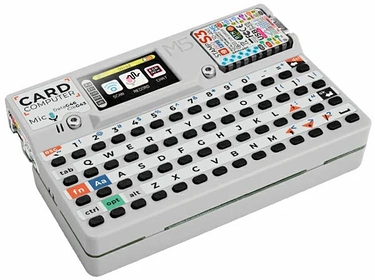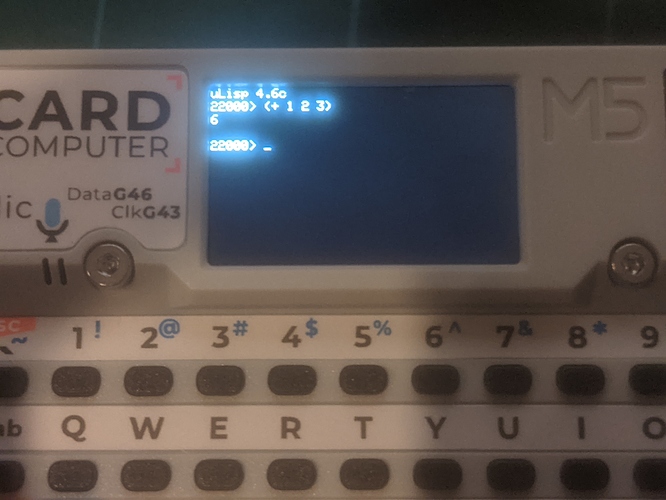For those who don’t know it, the M5Stack Cardputer is a 56-key keyboard and 1.14" TFT screen with a resolution of 240 x 135 pixels that includes a M5StampS3 module, containing an ESP32-S3:
For more information see: M5Stack Cardputer Kit with M5StampS3,
The screen seems a bit small for programming in Lisp; with a 5x7 bitmap font it will provide 16 lines of 40 characters. However, it should be possible to port the ESP32 version of uLisp to it. However, note my reservation about the ESP32-S3 built-in USB interface, as yet unfixed:
I don’t currently recommend ESP32-S2, ESP32-C3, or ESP32-S3 boards that use the built-in USB interface (USB CDC) because of a problem that causes them to hang up if you upload a long Lisp program (at least on MacOS).
As far as keeping the original firmware is concerned, I assume you mean being able to access the firmware functions, such as LoRa on the T-Deck, from uLisp? To do this you would need to implement a uLisp extension file containing uLisp functions that implement the firmware features, which would require C programming.


